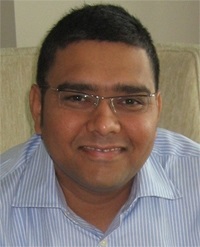
University of Houston-Downtown, USA
The tutorial aims to introduce machine-learning concepts for data analytics and provide hands-on experience in developing machine-learning models without writing computer programs.
A foundational understanding of machine learning (ML) is crucial for constructing both descriptive and predictive ML models. Several pre-built ML libraries are available for widely-used programming languages such as R and Python, facilitating the development of ML models. Nevertheless, utilizing these libraries necessitates proficient programming skills, thereby limiting access to individuals familiar with Python or R programming.
The proposed no-code ML approach alleviates the programming requirement by providing tools for model building and evaluation through a visual programming approach. Specifically, the tutorial will provide hands-on training using Orange – a visual programming tool for creating machine-learning models. The ability to construct ML models without the necessity of coding would democratize the field of machine learning and expedite the data analytics process.
Anyone interested in learning machine learning for data analytics.
Orange (https://orangedatamining.com/)

Dr. Dvijesh Shastri is a Professor of Computer Science and an Assistant Chair of the Department of Computer Science and Engineering Technology at the University of Houston – Downtown. He specializes in affective computing and human-centered computing. He has developed many computer vision and image processing algorithms that capture physiological signals from thermal imagery and associate them with human psychological states; these algorithms offer a novel toolkit for human behavior analysis. He has developed a novel non-contact way of measuring emotional perspiration responses from the face, which is a completely different approach from the contact-based clinical standard of measuring perspiration from fingers. This method allows realistic psychophysiological studies where subjects can operate naturally. Dr. Shastri has co-authored more than thirty publications in conferences and journals. He has been PI and CO-PI for multiple grants. He received a B.E. in Electrical Engineering from Sardar Patel University in 1997, a M.S. in Computer Science from Wright State University in 2001, and a Ph.D. in Computer Science from the University of Houston in 2007.